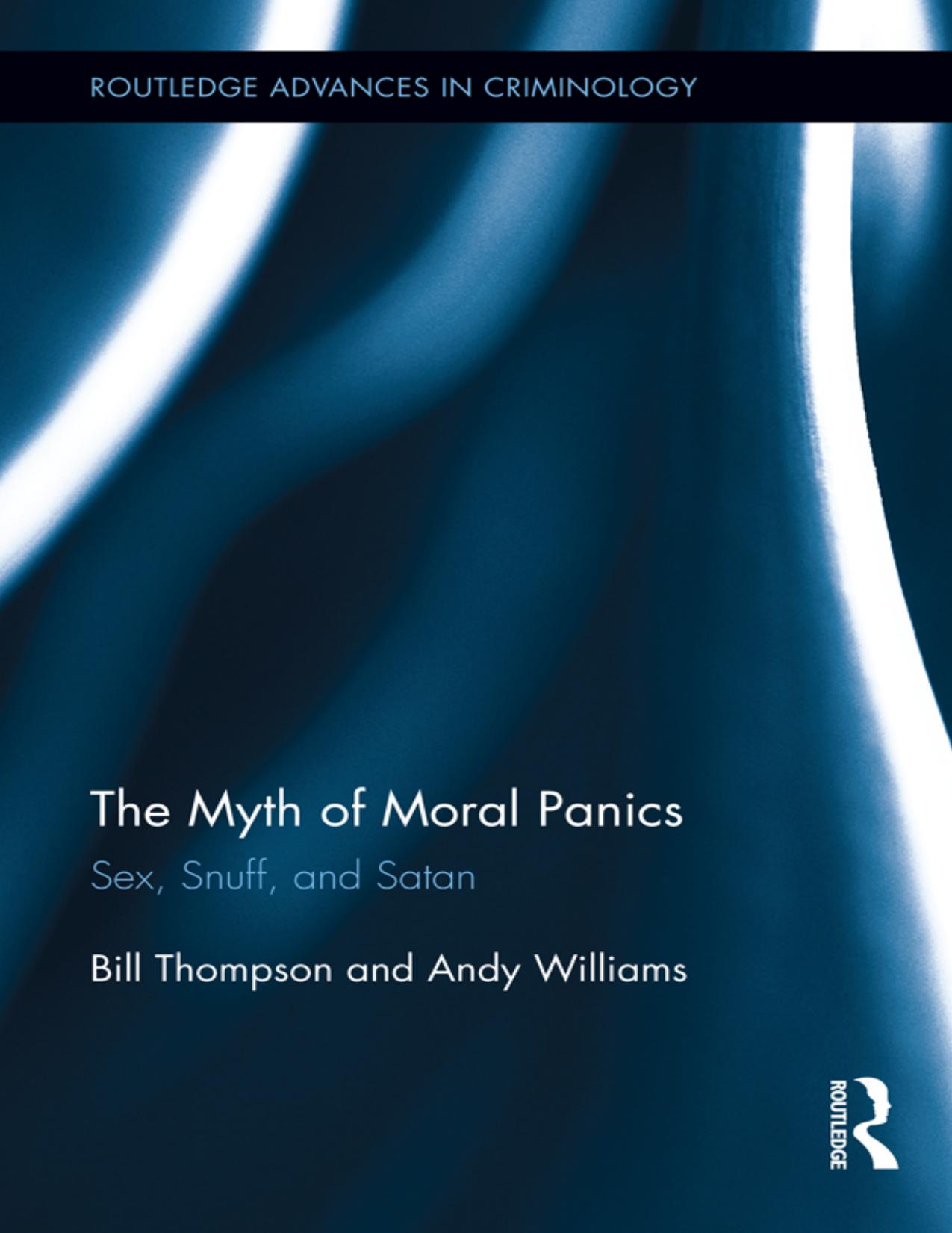The Myth of Moral Panics: Sex, Snuff, and Satan by Thompson Bill Williams Andy

Author:Thompson, Bill, Williams, Andy
Language: eng
Format: epub, pdf
Publisher: Taylor and Francis
Whereâs the Panic?
While Barkerâs account proved extremely popular and spread the concept of moral panic beyond academia, no one noticed that the video nasties episode did not even match descriptive panics. As the public were renting the videos, there could be no moral consensus. On the contrary, the campaign to outlaw the ânastiesâ demonstrates how moral entrepreneurs try to create the impression of a public demand to impose a âconsensusâ on society. The media can not be used as a proxy for public panic in this case as it was divided over the merits of the bill. Several papers and journals even denounced the bill as âmoral panicâ. Guy Cumberbatch, Britainâs leading authority on media effects was given plenty of space to question the validity of Hillâs research in the liberal Guardian, which also held a week long series âWhere Do You Draw The Lineâ with only Poly Toynbee dissenting from the general condemnation as she tried to ingratiate herself with professional feminists having been a member of the now politically incorrect Williams Committee. The conservative Daily Telegraph argued that the state had no business playing censorious policemen, and The Times did likewise. Indeed, our review of the first 100 articles, features, and editorials on the subject published in those newspapers and The Daily Mail, The Daily Express, and The News Of The World found 25 in favor of the bill, 48 against; and 23 factual accounts about the bill. As well as demonstrating that there was no media engendered panic, those figures help explain why Graham Bright quickly distanced himself from the PVI and scrabbled round for a new justification for âhisâ bill [compare The Times, 8.3.84 and The Listener 14.6.84].
Likewise, Barkerâs claim that the entrepreneurs were working hand-in-glove with the Government does not stand up to scrutiny. His claim rested on Whitehouseâs initial praise for David Mellor at the Home Office reflecting her relief that the libertarian William Whitelaw had finally gone, and Sir Bernard Brainâs amendment to ensure that video versions of movies had more cuts than those seen in the cinema to make them more âsuitable for viewing in the homeâ as children might be present. However, Barkerâs political selectivity ensured that he failed to record that Whitehouse quickly changed her mind once she realized that Mellor was promoting the interests of the film industry, or the reason why Sir Bernard and Mellor constantly crossed swords during the committee stage of the bill, particularly over the introduction of an 18R certificate making hardcore porn legal, giving the permissive British Board of Film Censors (BBFC) the job of rating the videos, and excluding British movies for export from the Act. Sir Bernard, who was gracious enough to treat one of the current authors to lunch in the Commons, confirmed that more than one MP backing the bill in public on the grounds that children needed protection was really âmoney madâ having a direct pecuniary interest in the bill; and that completely undermines Barkerâs interpretation of the MPsâ public statements, and his rationale for the bill [1984b: 19].
Download
The Myth of Moral Panics: Sex, Snuff, and Satan by Thompson Bill Williams Andy.pdf
This site does not store any files on its server. We only index and link to content provided by other sites. Please contact the content providers to delete copyright contents if any and email us, we'll remove relevant links or contents immediately.
Spare by Prince Harry The Duke of Sussex(5196)
Machine Learning at Scale with H2O by Gregory Keys | David Whiting(4313)
Fairy Tale by Stephen King(3396)
Will by Will Smith(2919)
The Bullet Journal Method by Ryder Carroll(2572)
Hooked: A Dark, Contemporary Romance (Never After Series) by Emily McIntire(2554)
It Starts With Us (It Ends with Us #2) by Colleen Hoover(2367)
Rationality by Steven Pinker(2363)
Can't Hurt Me: Master Your Mind and Defy the Odds - Clean Edition by David Goggins(2341)
Friends, Lovers, and the Big Terrible Thing by Matthew Perry(2230)
The Becoming by Nora Roberts(2201)
Love on the Brain by Ali Hazelwood(2078)
A Short History of War by Jeremy Black(1848)
HBR's 10 Must Reads 2022 by Harvard Business Review(1844)
The Strength In Our Scars by Bianca Sparacino(1843)
A Game of Thrones (The Illustrated Edition) by George R. R. Martin(1744)
Leviathan Falls (The Expanse Book 9) by James S. A. Corey(1743)
515945210 by Unknown(1666)
Bewilderment by Richard Powers(1620)
